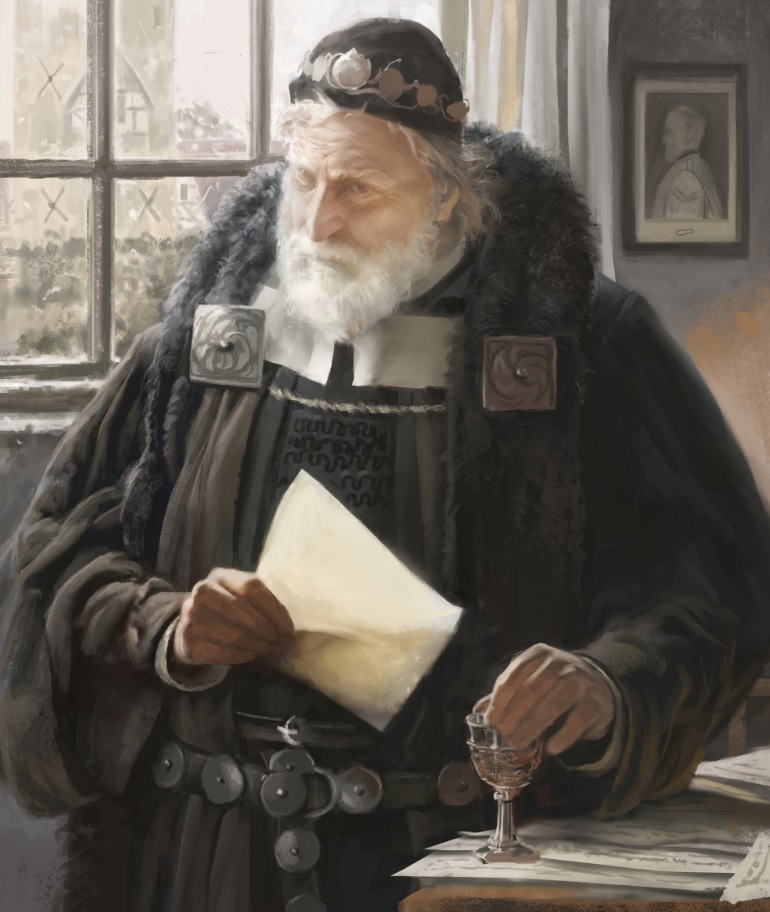Abbot (title)
Abbot is an ecclesiastical title accorded to the superior of an abbey of monks, canons regular or nuns, within the Catholic Church. Elected to the office for life, the abbot rules his or her religious members according to the constitutional orders and prescriptions of canon law. The abbot is invested with a pectoral cross as an episcopal insignia, as well as a ring and crosier, or stylised hooked staff.
Contents
Within three months of election, the abbot must be blessed by the bishop of the diocese in which the ascribed abbey is located; once this special blessing has been received, the abbot — though a priest and not a bishop — may, by privilege, confer first tonsure and minor orders on his or her subjects; pontificate or perform sacred functions with throne and baldachino; and wear a miter.
If the jurisdiction of an abbot isn't limited to the abbey, but extends to all clerics and lay people living within the abbey's defined territory that isn't subject to a diocesan bishop, then he or she is called "abbot nullius" (of no diocese). The abbot's authority in that district, even though he or she isn't a bishop, is equivalent to that of a bishop. Such abbots must be nominated and invested by the pope.
In the game world, where religious institutions hold significant sway over social and political structures, abbots may wield considerable power over not only their own communities but also surrounding lands. Many abbots exert great influence in both ecclesiastical and civil affairs, enjoying immense privileges. By the 17th century, the time of the game world, many abbots are assigned the revenues of their monasteries for life. Many serious abuses of this have occurred, a matter that was curbed somewhat by the Council of Trent between 1545 and 1563.
In some abbeys, particularly those with wealth, military holdings or long-standing autonomy, the abbot may be a patron of learning, a lord of vassals or a negotiator among nobles and bishops alike. He or she might command retainers, maintain court officers or receive emissaries. These roles vary widely based on the influence of the specific abbey, the strength of local diocesan control, and the level of royal or noble interference.
Investiture
To be invested as an abbot, a candidate needs to be elected by the monastic community, typically the senior monks or canons of the abbey. This election must be free of coercion and recognized by church authority. Once elected, the candidate requires confirmation from the bishop of the diocese, or in special cases, from higher ecclesiastical offices like a cardinal or the pope. Within three months, the new abbot must receive a formal blessing, which is not just ceremonial — it confers the spiritual and administrative authority of the office. This rite includes a mass, the laying on of hands, and the presentation of the abbot’s insignia.
For an abbot nullius — one whose authority extended beyond the abbey — papal appointment is necessary. These are rare cases where the abbot holds jurisdiction over an entire territory, effectively acting as bishop despite not being ordained as one. The pope would issue bulls granting this status and defining the scope of their authority.
See also,
Politics (sage study)
The Church (sage field)
